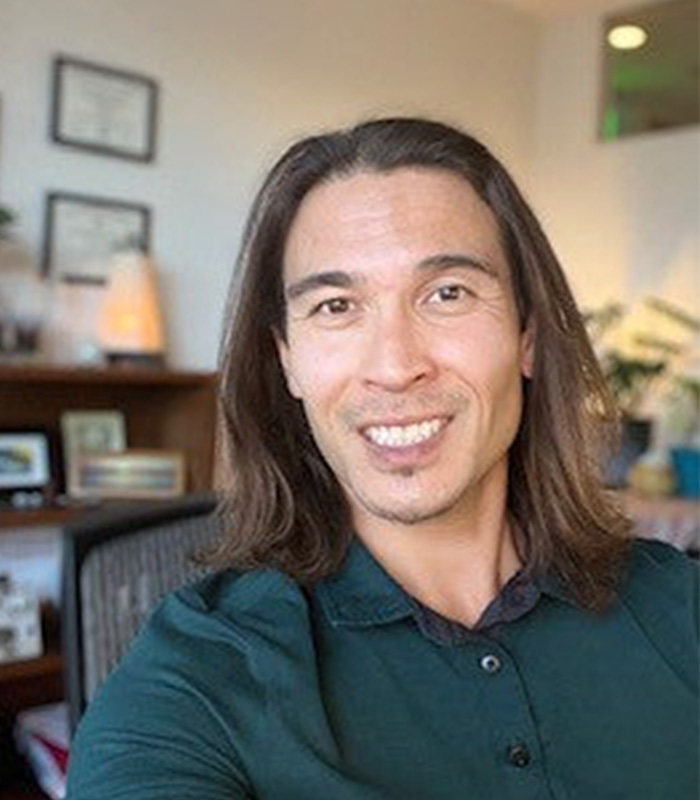
7-Week Academic Courses
Study the science, practice, and application of mindfulness to academic, personal, and professional success
The ASU Center for Mindfulness, Compassion and Resilience is excited to present two new credit-bearing, semester-length courses, Foundations of Mindfulness and Resilience: Science and Practice and Organizational Mindfulness: Leadership and Success in the Workplace.
These courses are our response to the ever-increasing mental health concerns facing our society. Our aim in offering it is to help build a new generation of community members, employees and leaders who know what building well-being and resilience means, both in a theoretical and a practical sense.
Foundations of Mindfulness and Resilience: Science and Practice introduces students to the practice of mindfulness as a means of developing greater resilience to challenges in life, school and the workplace; managing stress, creating stronger relationships; and for overall mental health and well-being. Students will learn to navigate academic, personal and professional challenges with greater ease. They’ll learn to use proven mindfulness techniques to build resilience within themselves, build stronger connections to others, and nurture a sense of belonging.
Based in the science and practices of mindfulness-based stress reduction, these courses provide contextualized introductions to the principles, practices, benefits, and applications of mindfulness.
- HCR 294 - Foundations of Mindfulness and Resilience: Science and Practice - Fall 2024 Session A (August 22 - October 10)
- HCR 394 - Organizational Mindfulness: Leadership and Success in the Workplace - Fall 2024 Session B (October 16 - December 6)
- Online, asynchronous (iCourse/eCourse)
- 3 credits
- Note: HCR 294 fulfills ASU General Studies Gold Social-Behavioral (SB) course requirement. Maroon SB designations for courses pending.
These courses are open to ASU in-person or online students from all disciplines. Undergraduate and graduate students welcome. Eligible for Barrett Honors College honors credit. While HCR 294 is designed for students new to mindfulness or curious about expanding their practice, it is open to any student regardless of previous training. HCR 394 is designed for students either preparing to enter the workplace or building skills to advance in their current careers.
Now, more than ever, we owe it to ourselves to be at our best mentally, physically, and emotionally. As a society, we are more distracted, more isolated, and lonelier than ever before. We are increasingly fragmented. We have become disconnected from even ourselves.
The U.S. Surgeon General has put out a call to action in two areas: one for the public health epidemic of loneliness and social isolation, and one for the need for workplaces to be systems for encouraging mental health and well-being, rather than detracting from it. This means that there is a need for individuals and communities to cultivate inner resilience and a sense of belonging.
Mindfulness, or the act of being in the moment, is the basis for both stress reduction and behavioral change, and can give us the mental and emotional resources to become resilient to the challenges of this modern world. Through training and practice, mindfulness is a tool for personal growth, greater connection to others, and change.
People around the world study and practice mindfulness for many reasons. Some of the most common include:
- Greater mental focus
- Greater emotional resilience
- Ability to navigate change and challenge
- Stress management and reduction
- Increased creativity and critical thinking
- Increased empathy and connection to others
- Enhanced interpersonal and leadership skills
Students will learn the history and origins of mindfulness both as a practice and a philosophy. This will include both spiritual and secular traditions and include the science of mindfulness, stress, and their effects on the human central nervous system and mental, physical, emotional and behavioral health and well-being. Students will explore and critically evaluate the current trends in mindfulness-adjacent wellness practices. Finally, they will learn about and begin developing practices around the benefits of mindfulness practice for greater academic, personal and professional development, including but not limited to emotional resilience, mental focus, interpersonal relationship management and leadership development.
Students completing this course will be able to:
- Define the history and philosophical tenets underpinning both spiritual and secular mindfulness practice
- Recognize how theory and research support the benefits of mindfulness practice
- Describe the practices and benefits of mindfulness practice
- Apply an informed mindfulness practice of their own
- Describe how mindfulness training can help them in their own lives and careers
- Identify the connections between mindfulness, stress, resilience, connection and sense of belonging
This course examines the ways mindfulness can help students develop the interpersonal, professional and leadership skills needed to thrive in our fast-paced workplace. Because the demands of today’s workplace require not only knowledge and proficiency, but flexibility and resilience, this course helps students build the essential resilience and leadership skills of empathy, compassion, patience, and understanding for both themselves and others. This course uses mindfulness as a toolkit to help students develop the emotional and practical skills needed to navigate their careers and develop into empathetic, innovative, compelling leaders, and examines emotionally-intelligent leadership styles and methods.
Students completing this course will be able to:
- Comprehend the effects of chronic stress and mindfulness and identify their own behaviors under stress or in a mindful state
- Comprehend current trends, demographics, and mental health challenges in the workplace broadly and in their chosen field specifically
- Explain how stress affects job performance (decision-making, leadership, initiative and motivation) and interpersonal relationships
- Apply strategies for creative problem-solving and navigating difference, conflict and negotiation
- Distinguish the ways healthy working relationships, work-life harmony, and trust-based professional relationships can lead to greater workplace productivity, focus, innovation and increased sense of purpose and belongingness, job satisfaction and resilience
- Compare and assess various leadership styles and strategies
- Consider how leading with compassion, empathy, gratitude and emotional equanimity can lead to stronger teams, greater performance and productivity, and increased job satisfaction

These courses are developed and taught by the staff of Edson College of Nursing and Health Innovation’s Center for Mindfulness, Compassion and Resilience – one of the first university mindfulness centers in the nation created as an institutional priority initiative to build human capacity through an innovative whole-person approach. Our instructors have hundreds of hours of experience teaching mindfulness for stress reduction, academic success, leadership development, and personal development.
Dr. Nika Gueci is a born and bred New Yorker who moved to the desert to advance Arizona State University’s Charter of inclusion and belonging. She is the Executive Director of ASU's Center for Mindfulness, Compassion and Resilience, created as an institutional-priority initiative to build human capacity through an innovative whole-person approach. Here, she furthers individual and community resilience through translational research, academic courses and leadership trainings. Nika has presented over 1k speeches, workshops, and events; and has been invited to speak on media sources such as Good Morning Arizona 3TV, NPR, ASU News, and keynote at national conferences. She serves as co-chair of the Mental Well-Being Committee, Arizona Department of Health Services and leads a state-wide strategy to reduce loneliness and social isolation.
Nika has been recognized as one of the top 50 leaders in Arizona for 2023 by Women We Admire and as Emerging Leader 2024 by Arizona Women in Higher Education. In 2023, she was a Senior Fellow at ASU's Learning Enterprise as venture design lead on Personal Development Solutions, created for learners to realize and develop their full potential as thriving human beings. She is a registered yoga teacher and ardent advocate for animal rights. She serves on the Arizona Veterinary Medical Association Wellness Task Force and fosters dogs. She holds an EdD in leadership and innovation from Arizona State University, MA in communication from New Mexico State University and a BA in Russian from Columbia University in the City of New York.
Dr. Nika Gueci on AZ3TV

Dr. Zachary Reeves-Blurton is the Assistant Director of the Center for Mindfulness, Compassion and Resilience, where he leads student initiatives, programming, and academic curricular development and leads workshops on resilience as a factor of personal identity and authenticity, compassion fatigue, and work-life balance. Raised in rural Alaska and a long-time Phoenician, he now calls the forest of southern New Hampshire home. Dr. Reeves-Blurton has presented alongside Dr. Gueci and the Center team for two years, has spearheaded content development for a statewide loneliness curriculum in conjunction with the Arizona Department of Health Services and delivered presentations, meditations, workshops and keynotes to organizations, educators, and community workers throughout Arizona.
He has published articles on compassion fatigue, overwhelm, and mindfulness as personal and systemic protection, contributing to publications as diverse as the Journal for Conservation Biology and the Veterinary Health Care Team of Arizona Newsletter. His work has been translated for Spanish-language publications Contacto Total and he has been featured on AZ FOX10. He is trained in mindfulness-based stress reduction (MBSR) and has studied mindfulness and presence with Dr. Jon Kabat-Zinn, founder of MBSR and ‘father’ of Western secular mindfulness. Finally, he is the long-haired, green-shirted face of mindfulness across ASU stock photography and wellness websites.
Dr. Reeves-Blurton holds an EdD in leadership and innovation from Arizona State University, where his research focus was on identity, belonging, and resilience among marginalized college student populations. He also holds an MA in English Literature from Washington State University and a BA in English from the University of Alaska Fairbanks Troth Yeddha’ campus.
Dr. Zachary Reeves-Blurton on AZFOX10